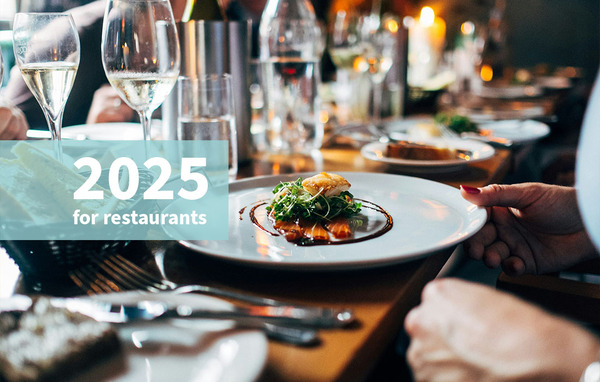How to prevent and manage customer chargebacks
When your customer calls to say their order hasn’t arrived, there should be a well-known path to solving any disputes, says Fiona O’Regan from Square
Over the past three years, more restaurants have taken their business online, allowing customers to click and collect or have their orders delivered. While this has been increasingly convenient for consumers, it has led to a spike in purchase disputes. Whether it’s confusion around delivery time or even fraudulent card orders, hospitality businesses are now facing more chargebacks.
Chargebacks are payment disputes where money is returned to a customer who disputes a fraudulent or non-fraudulent credit or debit card transaction. When a customer’s card is used without consent it’s fraudulent, while non-fraudulent refers to errors with an order, a cancelled delivery, or a delivery not received at all.
There are a few steps you can take to help prevent disputes before they happen and to manage the process when they do, to continue delivering a seamless experience.
Know your customer
If you keep track of customer orders it’ll be easy to spot an unusual order based on a customer’s history on whatever management platform you use. Verify if an address is real or if the customer has ordered from you before. Ask for a signature or a unique code on delivery for an extra layer of confirmation that the correct customer has received the order.
Empower your customers
Include photos and descriptions on the menu, so customers can see what they’re ordering and what they should expect to receive. If you provide receipts, so that both the customer and your business have a record of the order, they can be referred to later in the event of a dispute.
Put customer service top of mind
Being impacted by a fraudulent order is stressful and businesses can play a role in supporting customers through the process. Make it easy for customers to get in touch so they can follow up with you directly if anything goes wrong. Having to hand details such as their email, name and address is useful when addressing a chargeback.
Best practice
You should collect certain information to protect yourself in the event of non-fraudulent disputes. For takeaway orders, ask the cardholder to present identification so your staff are confident the order has gone to the right person.
For deliveries, ask the delivery driver to take a photograph of the completed delivery and ensure they log confirmation from the delivery partner that the food was delivered.
After your business has been notified of a successful delivery, schedule a push notification asking the customer to review the delivery or tip the delivery driver. Timestamps are incredibly useful for delivery tracking, so everything is logged accurately.
Cutting back on chargebacks
As restaurants continue to navigate both off and online worlds, an increase in fraud disputes can be challenging. Unexpected chargebacks impact a business and can be difficult to navigate, especially in today’s trading environment. The key takeaway is to ensure strong communication with customers and to stay on top of orders.
Fiona O’Regan is the product manager for Square




















